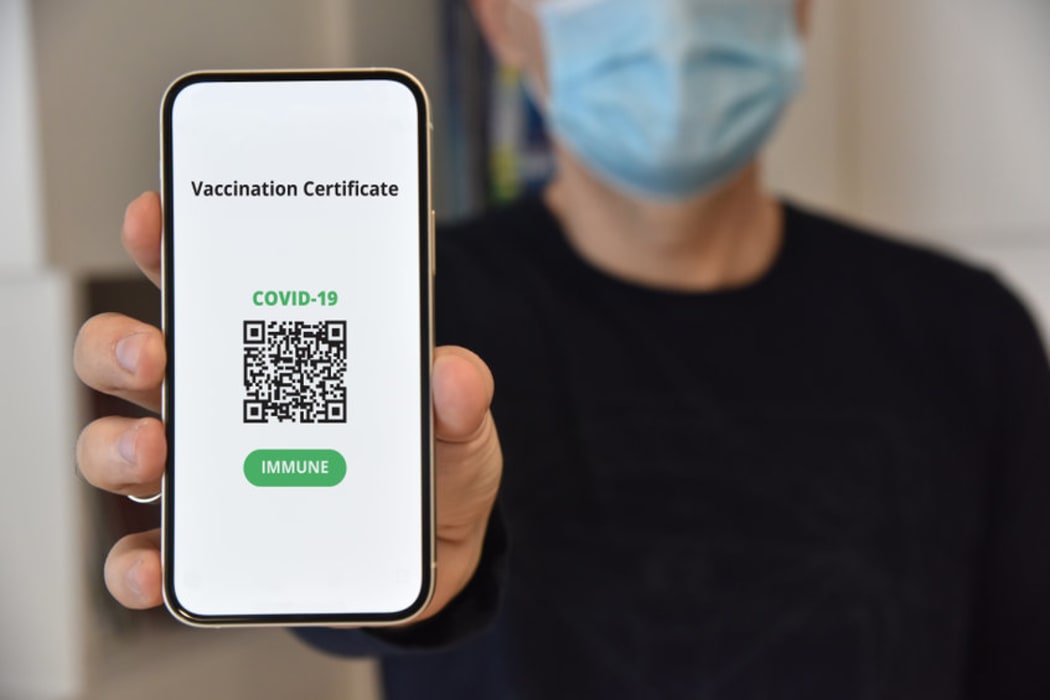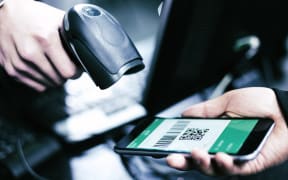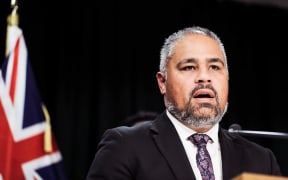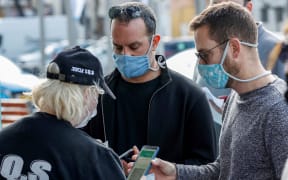By Andrew Mayfield*
Opinion - A vaccine passport is for everyone just like a government is for everyone - it needs to be designed that way.

New Zealand's 'vaccine passport' is likely to be a digital Covid-19 vaccination certificate containing a QR code. Photo: 123rf
Like any leader of a tech company, every day we're walking the quivering slackline between data privacy, education, and user experience as we build new tools. Lean too far any one way and you're risking security, clients, revenue.
For a government, it's an entirely different proposition. The slackline is a tight rope and you're 100 feet above Queen Street. Which is to say that success and failure are always going to mean more, to more people.
Businesses can market a product at a particular segment of the country and walk away happy if they manage to get even half of them through the signup form. In the case of the government and its vaccine passport, anything less than 100 percent undermines the national Covid strategy.
The reason I point this out is to underline the fact that the government's design strategy, and its ethical implications, must be considered with the same gravity that they would approach the most important policy going through Parliament.
A signature issue that should be front of mind in this design consideration is the growing fear that digital vaccines could worsen economic divides, perhaps further disenfranchising the poor/old/rural or otherwise phoneless people among us.
It is heartening that the government has opted to include printed alternatives (emailed QR codes, or via SMS would also be useful). It is also heartening that around 97 percent of New Zealanders have access to a smartphone, meaning the app is more accessible than other countries, which are battling with tech inaccessibility.
But, just because we have access to smartphones, doesn't mean we all use them in the same way. Ensuring a smooth experience is essential for any app, and for something as important as a vaccine passport, this has ethical implications.
The poor uptake of the Covid tracer in the lead-up to the most recent Delta outbreak showed that even for an app with relatively low onboarding requirements, it can be enough to dissuade entire segments of the population. For a vaccine passport, these problems will only be magnified.
Early murmurings about the technology being too difficult to sign up to do not bode well for the mass use will surely be a primary goal for this project.
We've all experienced for ourselves that the smallest friction on a website or app can cause us to abandon ship. With a mandatory vaccine passport, fleeing isn't a viable option. The design consideration needs to factor in that many of the target users (hint: everyone!) won't be as tech literate as the people complaining on twitter.
Like any software implementation, partnering with diverse community bodies should be encouraged, funded and supported throughout the development and implementation of vaccine passports. Key information on data privacy, for example, should be accessible to our Māori, NZSL, Pasifika, Chinese and ideally all non-English speaking communities alike.
Vaccine passports are already being trialled by Air New Zealand offering the keys to global travel. As borders will likely open up, we also need to ensure our app remains compatible with global systems that have differential access to vaccines, technologies and languages.
From the outset, the app needs to be standardised across different countries, with different languages. We don't want a scenario where people need a new vaccine passport for every country they visit.
National Geographic exposed the result of creating different apps for different countries, whereby travellers were forced to share documents or emails from labs, sometimes in different languages to those reviewing them, in order to prove that they have met the criteria to enter a country.
This is not only poor user experience, but another strain on those working at venues. Thus, while vaccine passports are for the benefit of all New Zealanders, it's important that it's designed inclusively for our visitors too, so we can start welcoming tourists, relatives, business people, and live music performers once again.
Data privacy
Another consideration is what information is being used and how it is stored. Digital vaccines shouldn't hold any information they don't absolutely need. It may be tempting for a government to link the app with other services, such as our Facebook and Google accounts, or even collect personal information, such as our home address, to assist with the vaccination process-or strengthen data mapping-but this could create a mixture of unintended ethical issues.
One way to help keep this vulnerable data safe is by decentralising it from our personal information. The app shouldn't collect anything more than vital health information, which is an individual's vaccine status or a recent Covid-19 test result. Ideally, the benefit of the proposed QR code should result in a simple Yes or No result based on the appropriate criteria for the venue. The person standing at the door shouldn't need to know if you're exempt, or anything else.
Finally, the Covid-19 app will likely be modified and updated, as we gain more knowledge on the virus. To maintain public trust, there needs to be transparency about how data is being used, updated and protected by Covid-19 credential systems.
It won't be enough to share these data privacy conditions in tiny-lettered forms, buried somewhere online in a thornbush of government policy, it needs to be in clear and accessible terms on the app itself.
Due in part to Aotearoa's impressive Covid strategy up until now, we also have the privilege of being able to start this a little later than everyone else. What this is, is a chance to learn from the good, the bad, and the ugly of how other countries have done things. It's not a chance to jump at the first available technology, or rush into something half considered.
We saw Israel as the first adopter of vaccine passports - implementing its green pass system - which enabled the holy vaccinated to flock to movies, gyms, restaurants and workplaces. It allowed the community to 'breathe again', while managing to increase vaccinations at the same time. However, it's early adoption raised security concerns, with some stating the QR code was a 'cyber security nightmare' as it struggled to deal with thousands of counterfeit passports.
As we move into this brave new world, with vaccine passports at the heart, New Zealand will have its own battles to ensure equity, privacy and security. This is quite unlike launching a new app for a business. A vaccine passport is for everyone just like a government is for everyone. That is a very different bar for a successful rollout. This new system will need to welcome and work for every person, on whatever device they have, in whatever context they're in.
*Andrew Mayfield is the chief executive of Optimal Workshop, a user experience (UX) research platform.




